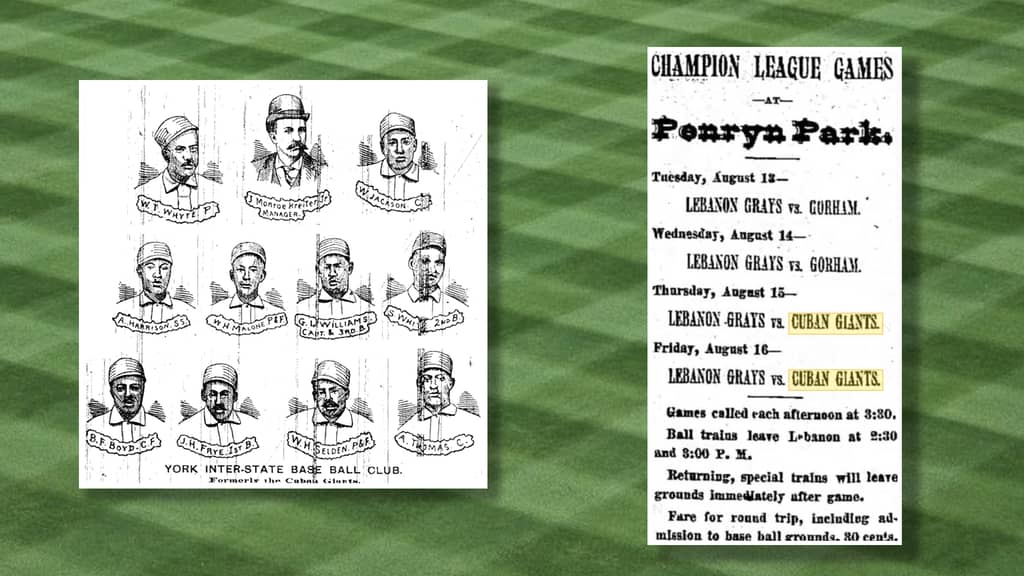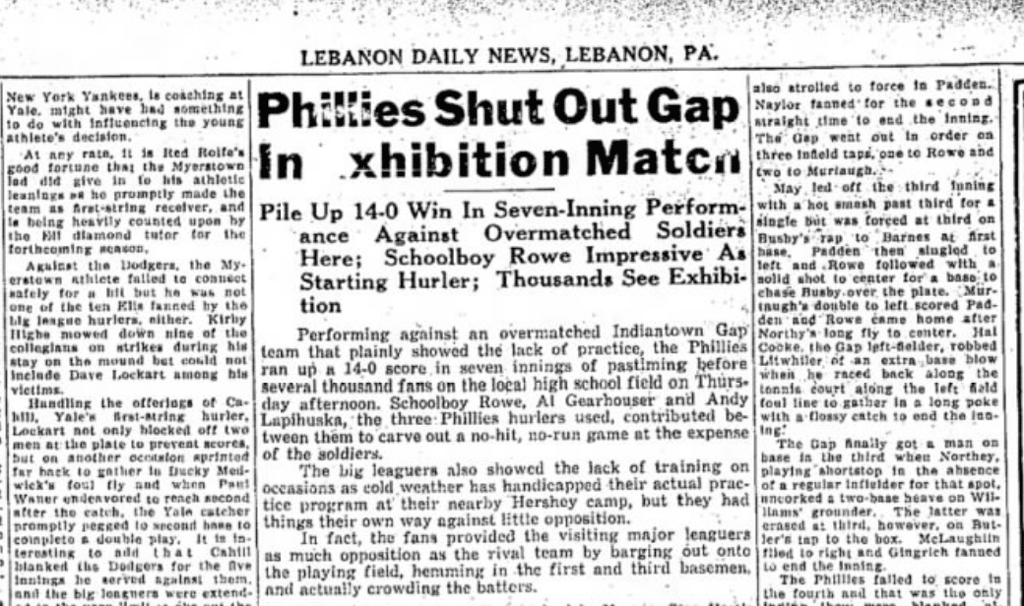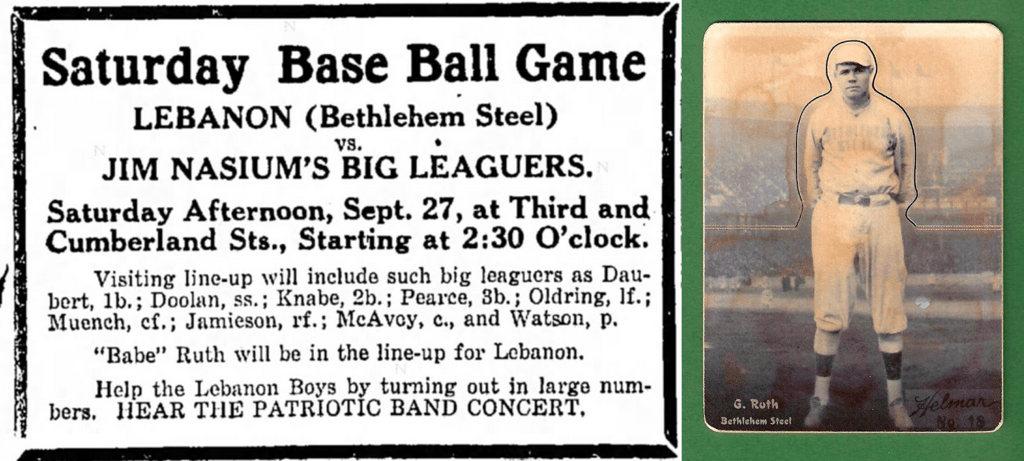Bill Ecenbarger’s fascination with the Steel League began in the early 1990s while he was living in Lebanon County and walking his dog around Penryn Park, today’s YMCA Camp Rocky Creek, where he noticed a sign for “Babe Ruth Field.”
“Initially, it seemed preposterous to me that an iconic figure like Babe Ruth would have played in Lebanon,” said Ecenbarger in an email to LebTown. “He had no previous connection to this area. I would have been no more surprised had you told me that the Pope of 1918 had said mass at St. Cecilia’s Church.”
Although Ruth’s appearance at Penryn Park may be apocryphal, Ecenbarger soon confirmed for himself that the Great Bambino did in fact spend time in Lebanon County during World War I, when he played on behalf of Bethlehem Steel’s Lebanon plant in the six-team “Steel League.” It was a short but storied stint that has captivated local residents for decades since, including Ecenbarger himself, who said he became hooked on the story.
“Not until I unraveled the story behind the Steel League and its relation to the military draft did it become clear that, yes, Babe Ruth actually played here. I think many other Lebanon countians felt the same way.”
Read More:
- How a railroad rivalry spurred the creation of Penryn Park, Cornwall’s answer to Mount Gretna
- When Babe Ruth played for Lebanon more than 100 years ago
- Does local collector Bill Werner have the Bethlehem Steel jersey Babe Ruth wore?
Ecenbarger, a career journalist and prolific author who lives today in Hershey, focuses on the Steel League in his latest book, “Work, Fight, or Play Ball: How Bethlehem Steel Helped Baseball’s Stars Avoid World War I,” available now through publisher Temple University Press as well as other retailers including Amazon.
Ecenbarger told LebTown that the Lebanon County Historical Society was tremendously helpful in his research.
“They opened their files to me totally, made suggestions for further research and provided a very special photograph that is used on the dust cover of ‘Work, Fight or Play Ball,'” he said.
Ecenbarger’s 234-page book, available in hardcover and eBook for $25 retail, looks at how Major League Baseball responded to America’s entry into the Great War first with public drills at spring training and before games, along with fundraising efforts, in the 1917 season. The 1917 season was played with the blessing of President Woodrow Wilson for the diversionary benefit baseball provided, before the toughening of the 1917 Selective Service Act with the 1918 “Work-or-Fight Order” created the possibility for any man aged 21 to 31 to be drafted into service.
With roughly 80% of MLB players of draft age, the July 1, 1918, cutoff of the Work-or-Fight Order spurned some players to enlist or prepare to be drafted, while others sought alternative employment to avoid service or at least diminish the chances of being deemed a “slacker.”
Charles Schwab formed the Steel League in 1917, prior to the Work-or-Fight order, and did so not out of any love for the game, but rather as part of a larger worker compensation and benefits program meant to mitigate the threat of unionization (which would come later following Schwab’s death when the company faced pressure from the New Deal-era federal government).
Schwab’s baseball Steel League was not the only industrial sports league during this period – and not even the only Bethlehem Steel had, for it also created the Bethlehem Steel Football Club to field a soccer team back in 1911, but in 1917 Scwhab alone had the vision and liquidity from a war-induced economic boon to aggressively recruit major leaguers. As Ecenbarger writes, the Steel League is “widely considered to be the best independent baseball circuit of all time.”
Ecenbarger’s book will serve as the new definitive history for how the Steel League fit into this backdrop, and provides an authoritative account for exactly how much (or how little) baseball was played by the greats who found refuge from the war in places like Lebanon.
Ecenbarger documents in detail how George Herman “Babe” Ruth spent 1918 – how he “became a hero” in the spring with his “sweeping, powerful, flawless swing” and and “re-created the national pastime in his image,” how he contracted the 1918 Spanish flu, and how he was at first deferred by his local draft board for being married.
Read More: 100 years ago, Lebanon grappled with a very different pandemic—the Spanish flu
Ultimately Ruth ended up in Lebanon eight days after the 1918 World Series to begin negotiations with Charles Schaeffer “Pop” Kelchner, the manager of the Lebanon squad, about joining the team – and ostensibly the plant, too, although by all accounts it seems unlikely that he did much work as a “blueprint runner” for the $500 weekly salary he would receive.
Ecenbarger calls out Kelchner in particular as one of the most remarkable people connected to Lebanon in this era.
“He was a college professor who spoke seven languages and taught three at Albright College, a Sunday school teacher and devout Christian,” said Ecenbarger. “Between 1912 and 1958, he was a major league (scout) who signed 86 players to major league contracts.”
“Four of his finds went on to become members of the Hall of Fame – Chief Bender, Walter ‘Rabbit’ Maranville, Stan Musial, and Lewis ‘Hack’ Wilson. It is believed that he signed more players than any other scout in history.”
For all the mystique Ruth’s time in Lebanon has today, Ecenbarger said that there was one common misconception which his book clarifies.
“First, he only played in one game, and he was unspectacular, striking out twice and taking an intentional walk,” said Ecenbarger. “Ruth fully expected to play for Lebanon in 1919, but the war ended, unexpectedly, in November 1918. Ruth was not yet known primarily as a home run hitter.”
“He was not yet the ‘Sultan of Swat.’ He was known mainly as a pitcher, and a very good one. Ruth didn’t yet play for the Yankees. He was still with the Red Sox.”

If you’re interested in the rest of the story, the book is well worth your read, and serves as the best-to-date anthology of the facts, legends, and legacy of Ruth’s time in Lebanon.
Read more stories of Lebanon’s baseball past
Questions about this story? Suggestions for a future LebTown article? Reach our newsroom using this contact form and we’ll do our best to get back to you.

Keep local news strong.
Cancel anytime.
Monthly Subscription
🌟 Annual Subscription
- Still no paywall!
- Fewer ads
- Exclusive events and emails
- All monthly benefits
- Most popular option
- Make a bigger impact
Already a member? Log in here to hide these messages
While other local news outlets are shrinking, LebTown is growing. Help us continue expanding our coverage of Lebanon County with a monthly or annual membership, or support our work with a one-time contribution. Every dollar goes directly toward local reporting. Cancel anytime.

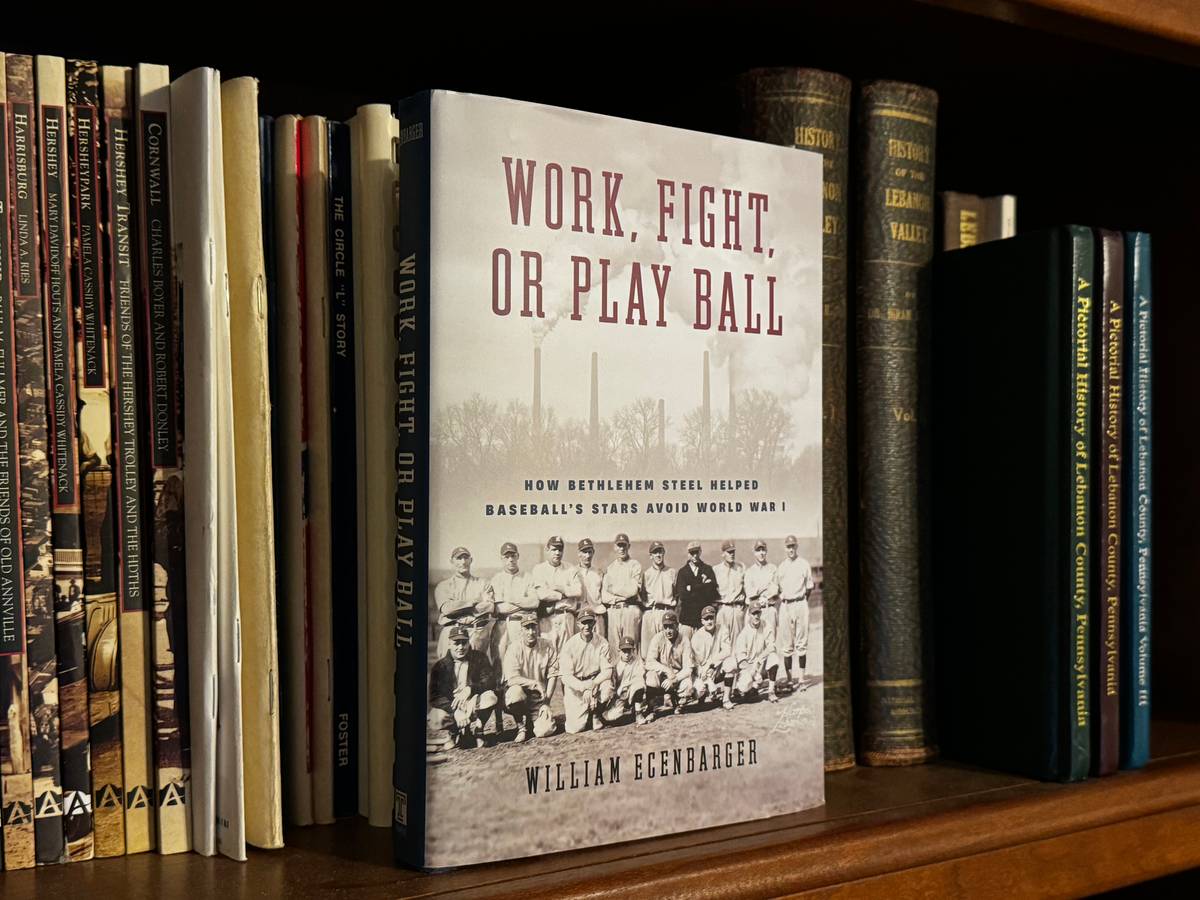


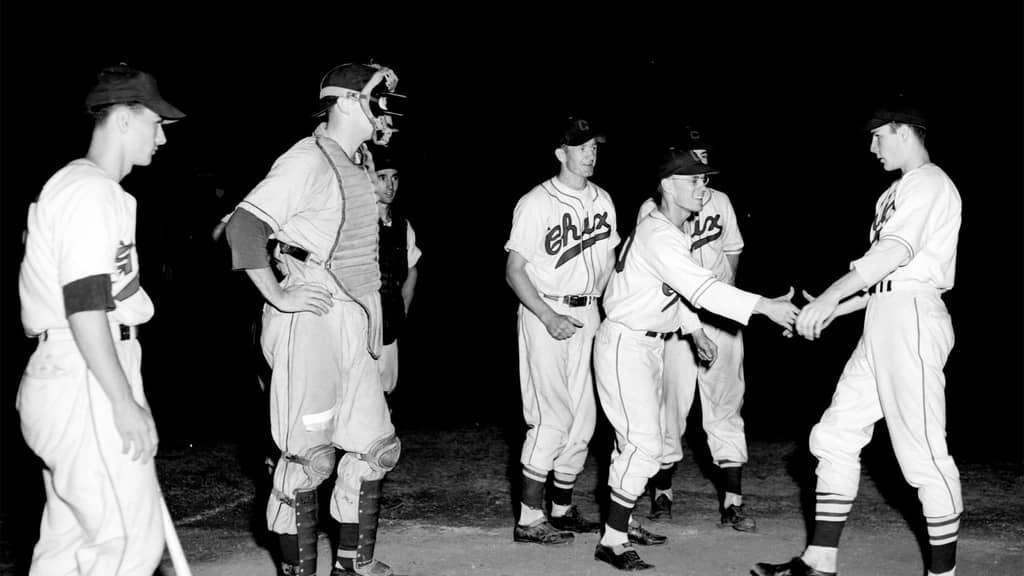
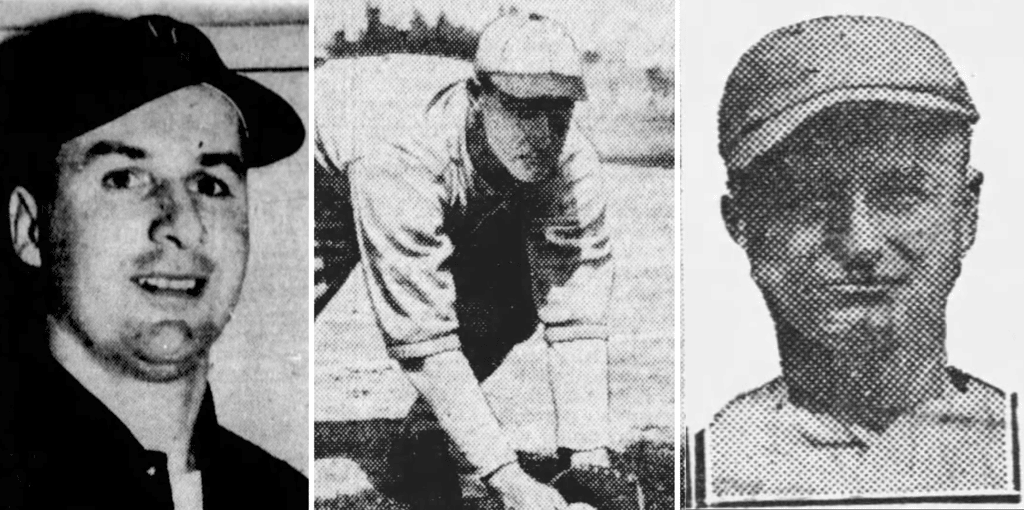
![[Column] Nelson George Greene, Lebanon’s Hall of Famer](https://images.lebtown.com/cdn-cgi/image/width=1024,slow-connection-quality=50,quality=70,format=auto/uploads/2020/07/greenecover.jpg)
